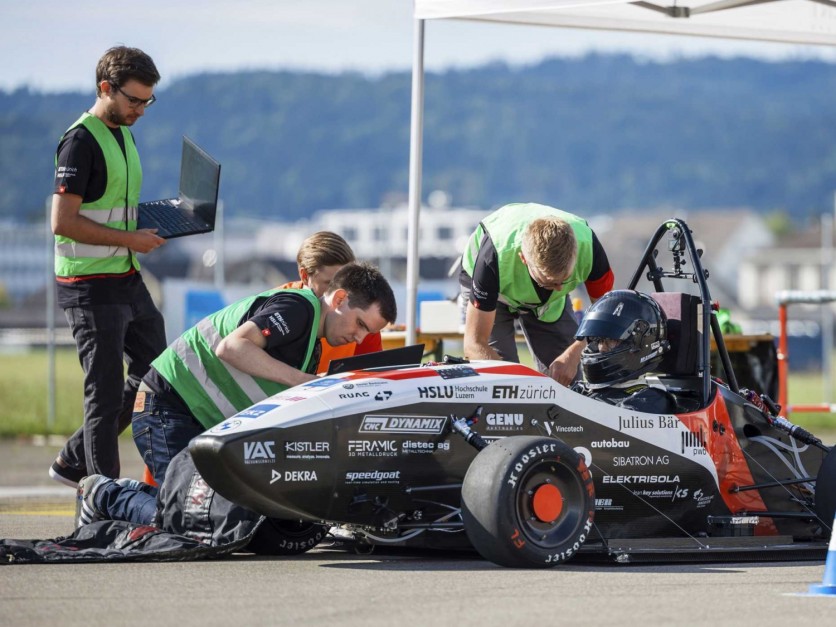A team comprising students of ETH Zurich and Lucerne University of Applied Sciences and Arts has achieved a remarkable feat, shattering the previous world record for electric vehicle (EV) acceleration.
The custom-built electric racing car, named "mythen," accomplished the astounding feat of accelerating from zero to 100 km/h in a mind-blowing 0.956 seconds, covering a distance of 12.3 meters.

New World Record Holder for EV Acceleration
The Academic Motorsports Club Zurich (AMZ), the driving force behind this achievement, expressed their delight. Over an extensive period, the student team invested countless hours perfecting their electric vehicle, "mythen."
They navigated through obstacles and repeatedly revisited the drawing board to fine-tune specific components. Guinness World Records has officially recognized "mythen" as the new world record holder for EV acceleration. This feat was achieved at the Switzerland Innovation Park in Duebendorf, Switzerland, opposite the students' workshop.
The car, driven by Kate Maggetti, sprinted from a standstill to 100 km/h (or 62.15 mph) in an astonishing 0.956 seconds, surpassing the previous record set by a team from the University of Stuttgart in September 2022 by over a third.
Yann Bernard, the head of motor at AMZ, reflected on the intensive journey, saying, "Working on the project in addition to my studies was very intense. But even so, it was a lot of fun working with other students to continually produce new solutions and put into practice what we learned in class. And, of course, it is an absolutely unique experience to be involved in a world record."
Every element of "mythen," from the printed circuit boards (PCBs) to the chassis and battery, was meticulously crafted and optimized for maximum efficiency by the students.
By leveraging lightweight carbon and aluminum honeycomb materials, the race car boasts a svelte weight of approximately 140 kilos (309 pounds).
The students' self-developed four-wheel hub motors and a unique powertrain grant the vehicle an impressive power output of 240 kilowatts, equivalent to roughly 326 horsepower.
'mythen' System Similar to a Vacuum Cleaner
Dario Messerli, head of aerodynamics at AMZ, emphasized that effective power transfer to the ground is as crucial as sheer power in achieving an acceleration record.
While traditional Formula One cars rely on aerodynamics for traction, this method becomes effective only at higher speeds. To ensure formidable traction from the outset, the AMZ team devised a novel system similar to a vacuum cleaner, which uses suction to anchor the vehicle to the ground.
It is worth noting that this is not the first time the AMZ team has achieved such a feat. They previously held the world acceleration record for electric cars in 2014 and 2016. The team from the University of Stuttgart later broke their record.
Now, the title is firmly back in Swiss hands. The students from ETH Zurich are confident they will maintain their grip on this record for the next couple of years.
Related Article : 'Fall Guys' is Guinness World Record Holder for Most Downloaded PS Plus Game of All Time

ⓒ 2025 TECHTIMES.com All rights reserved. Do not reproduce without permission.




